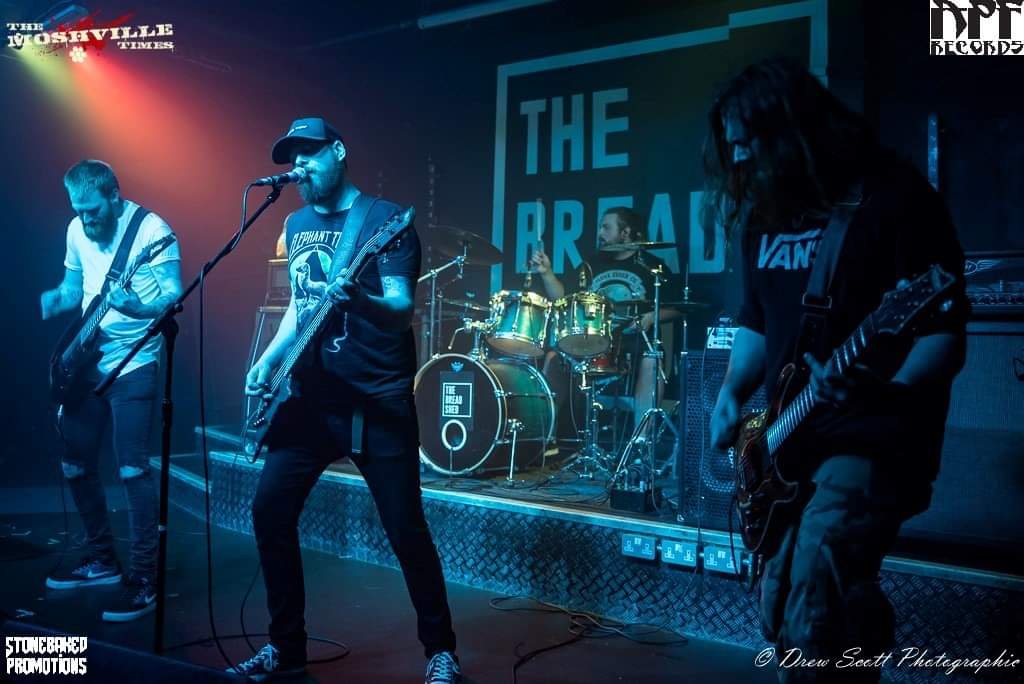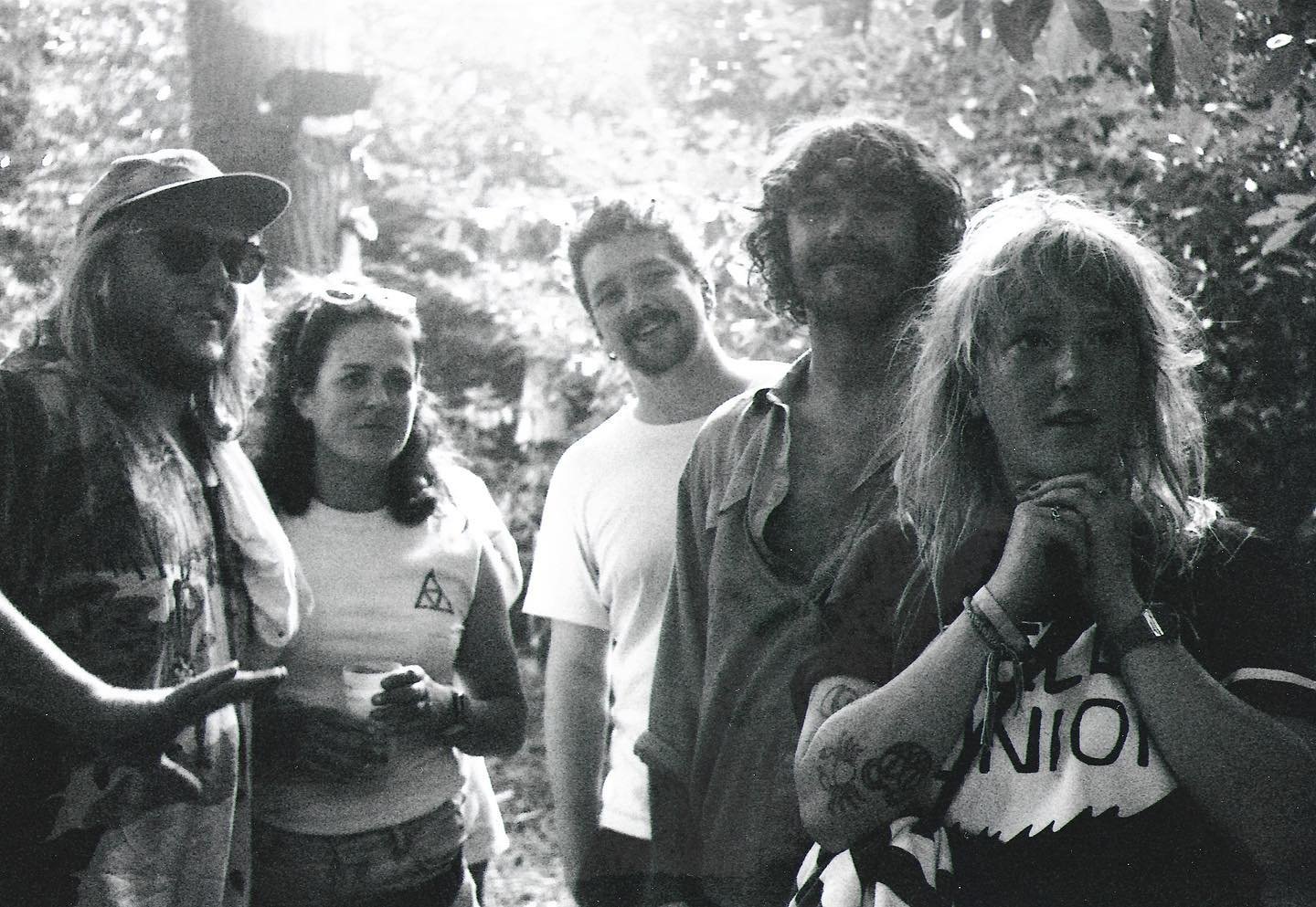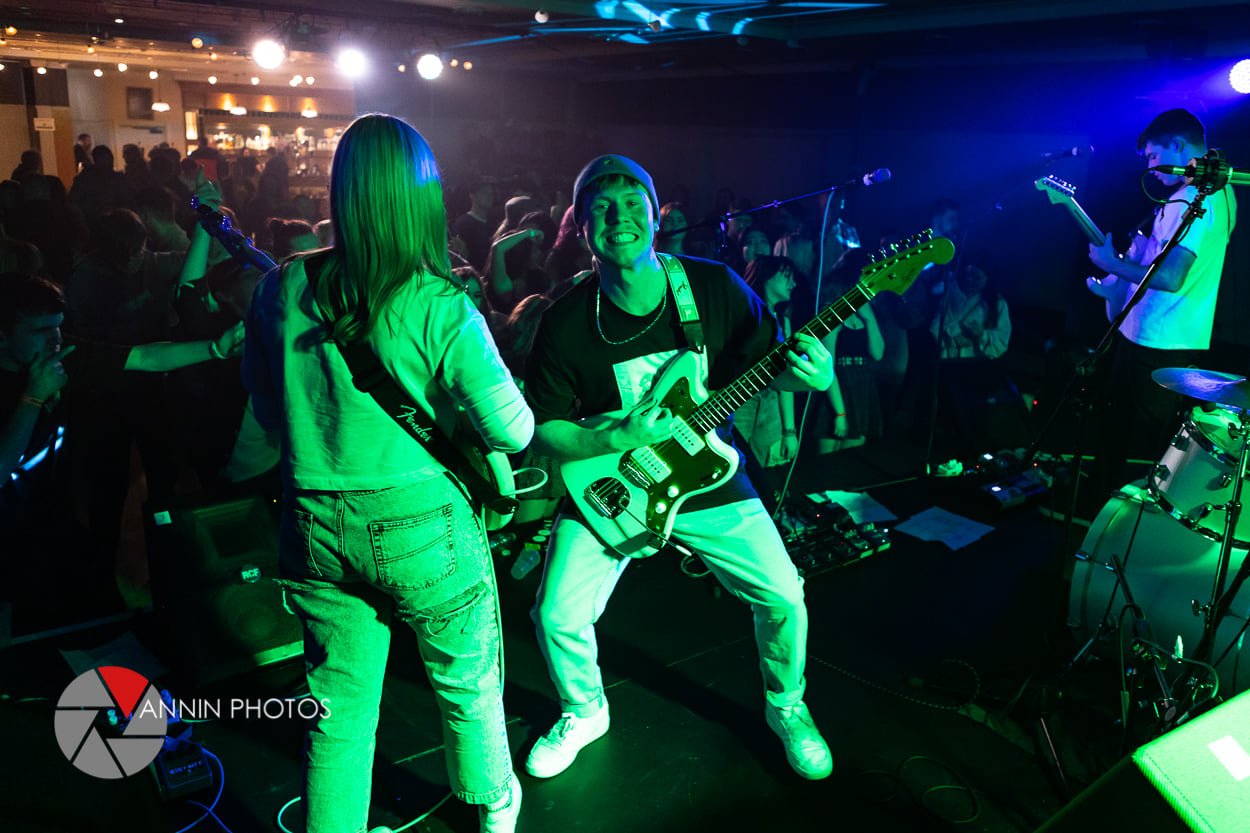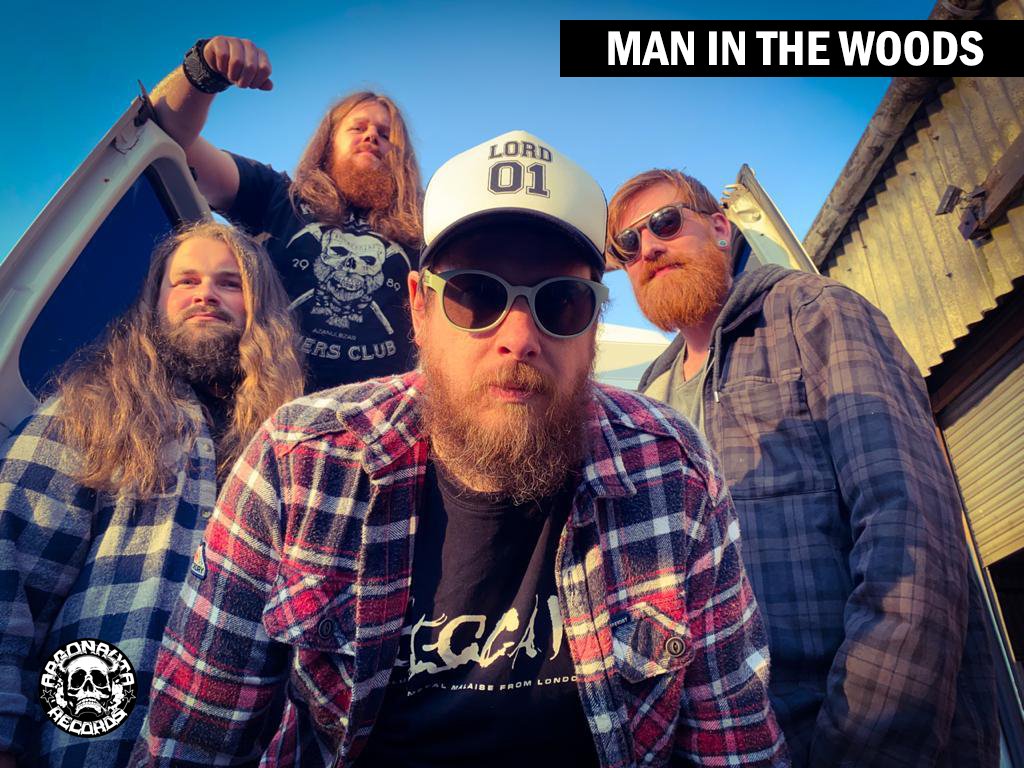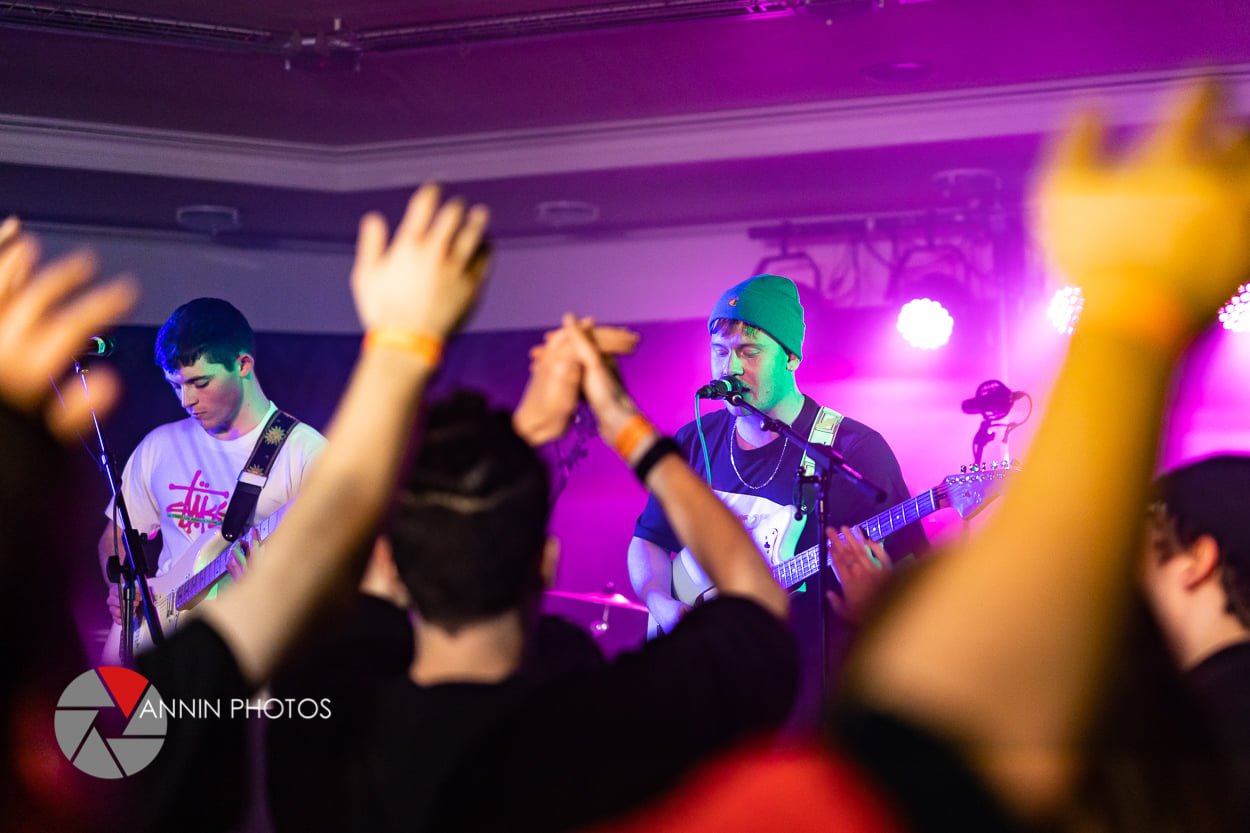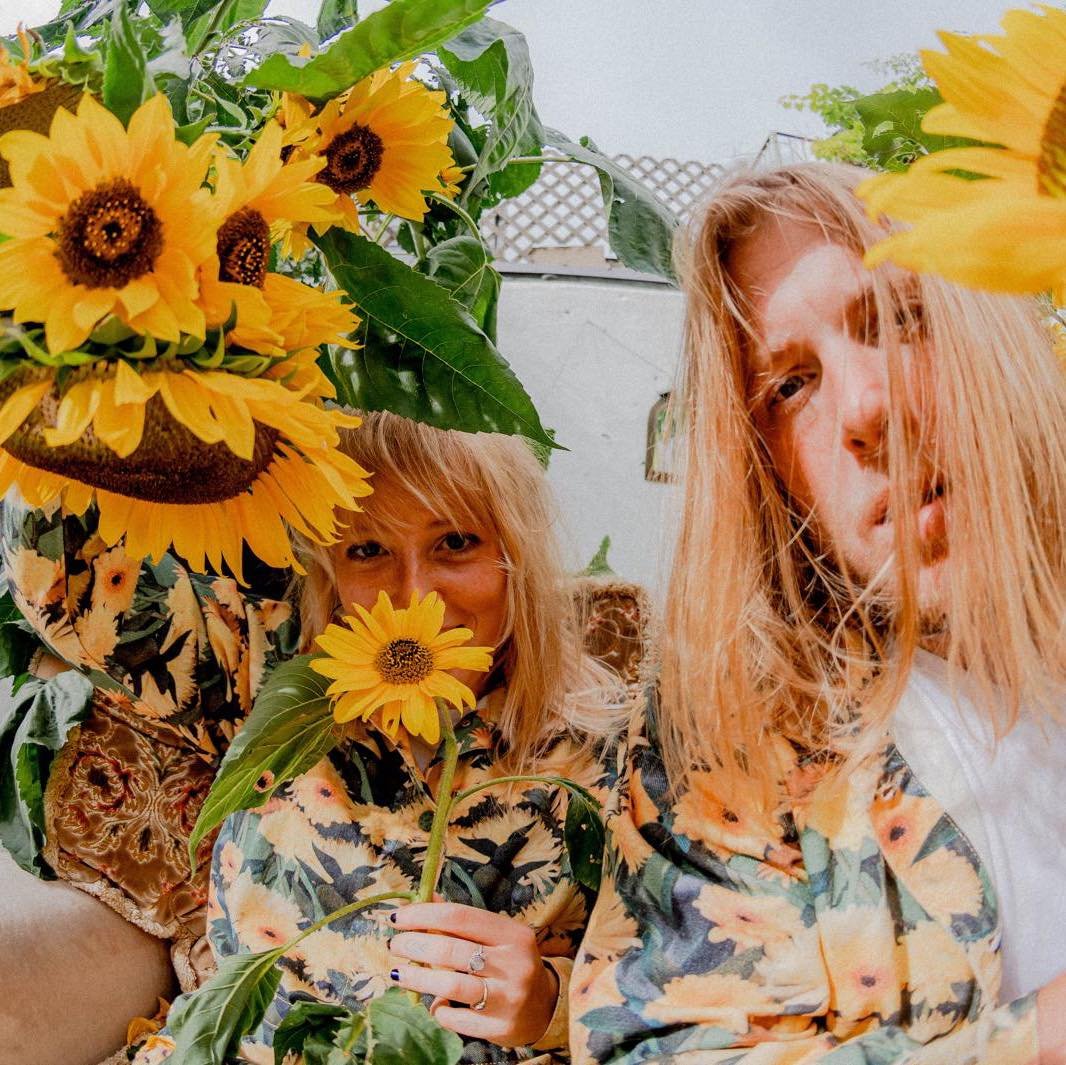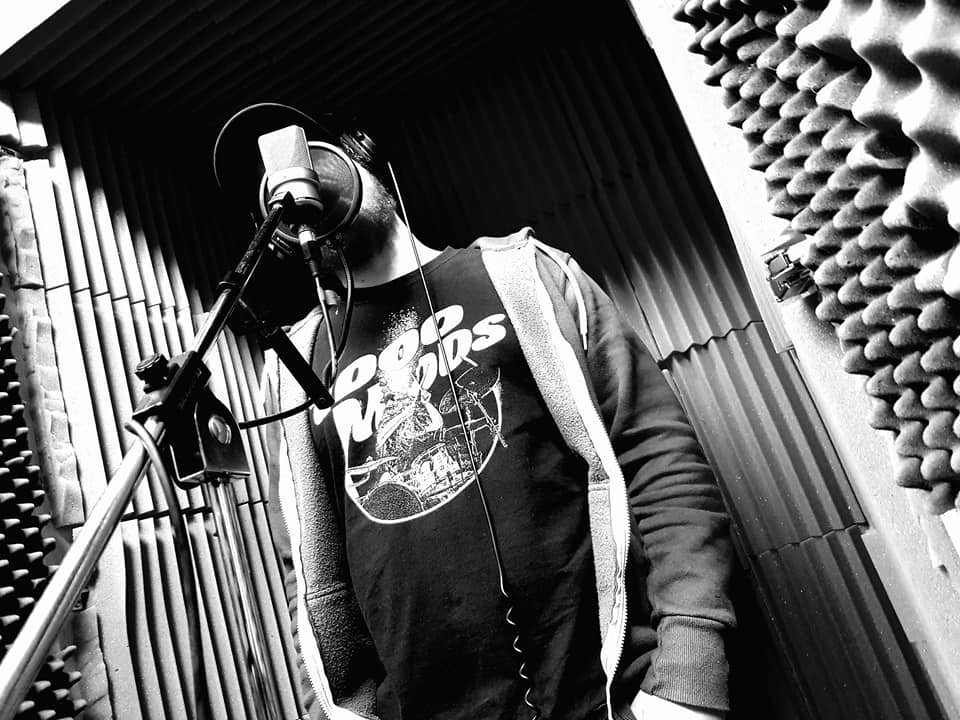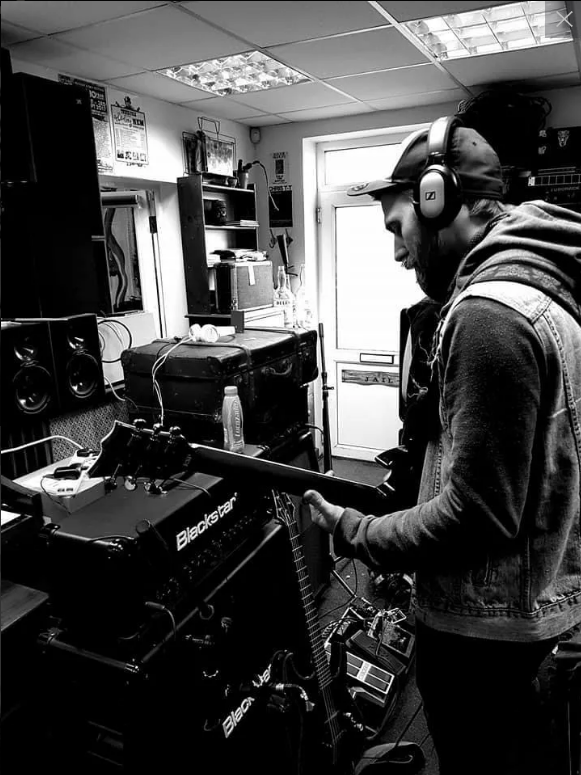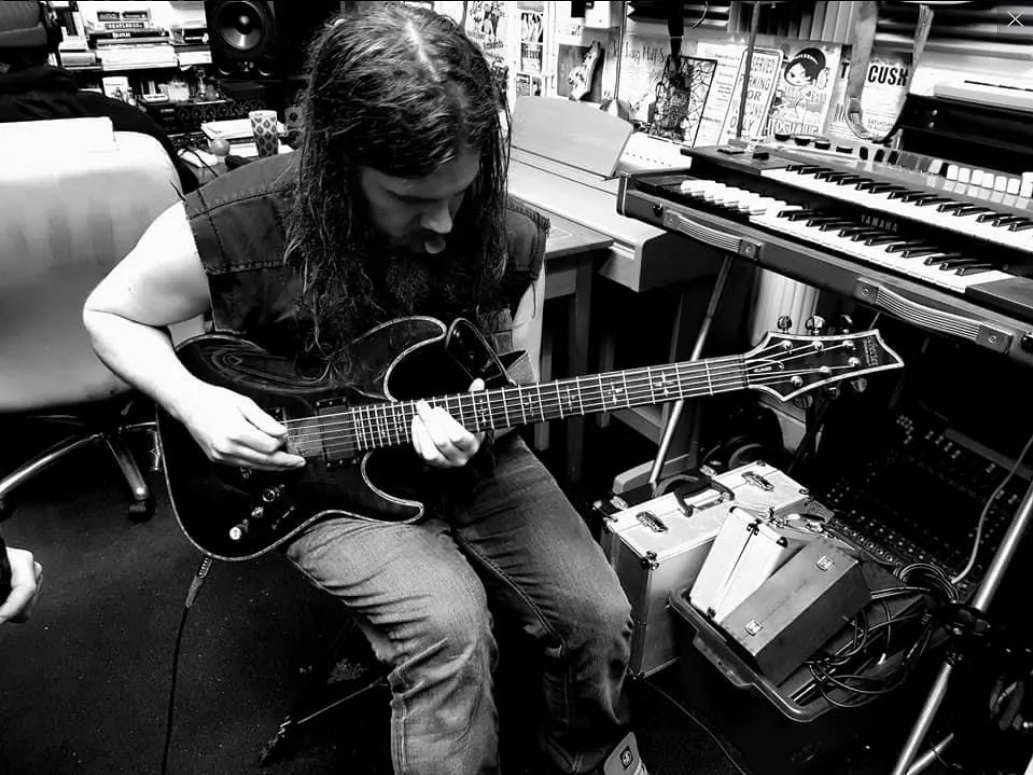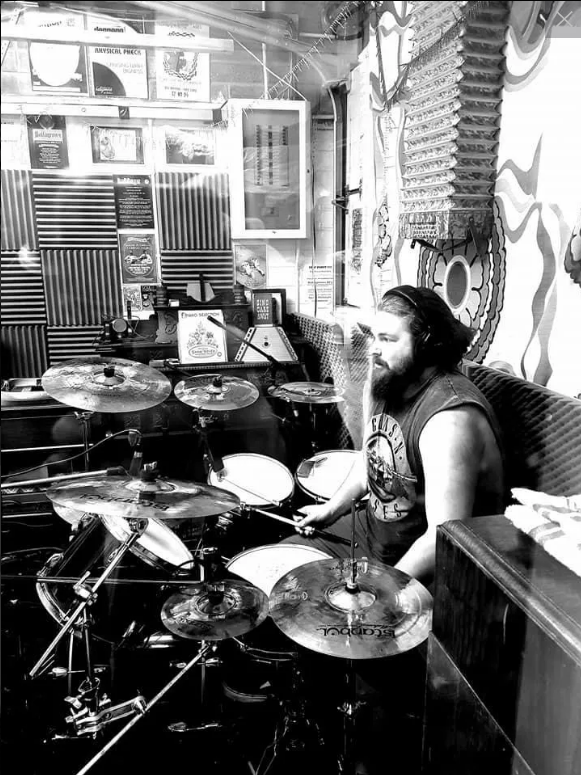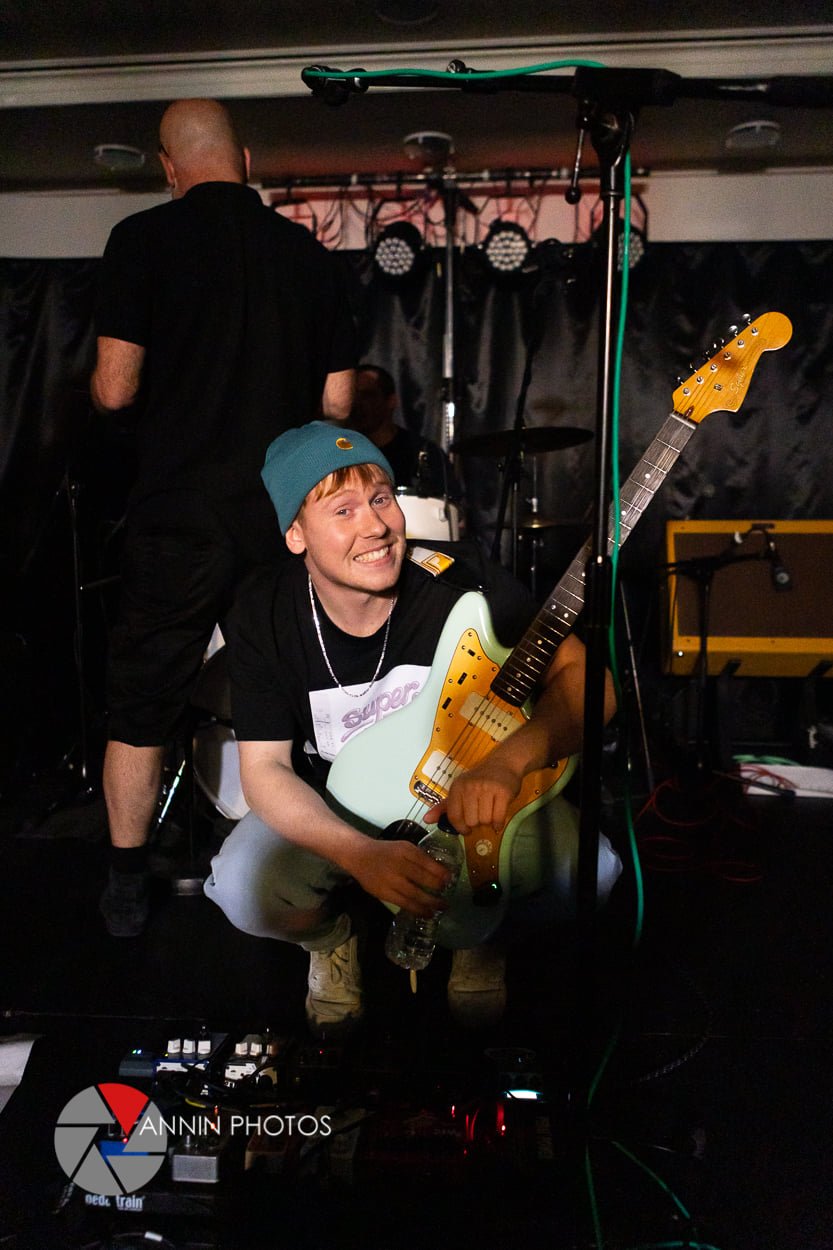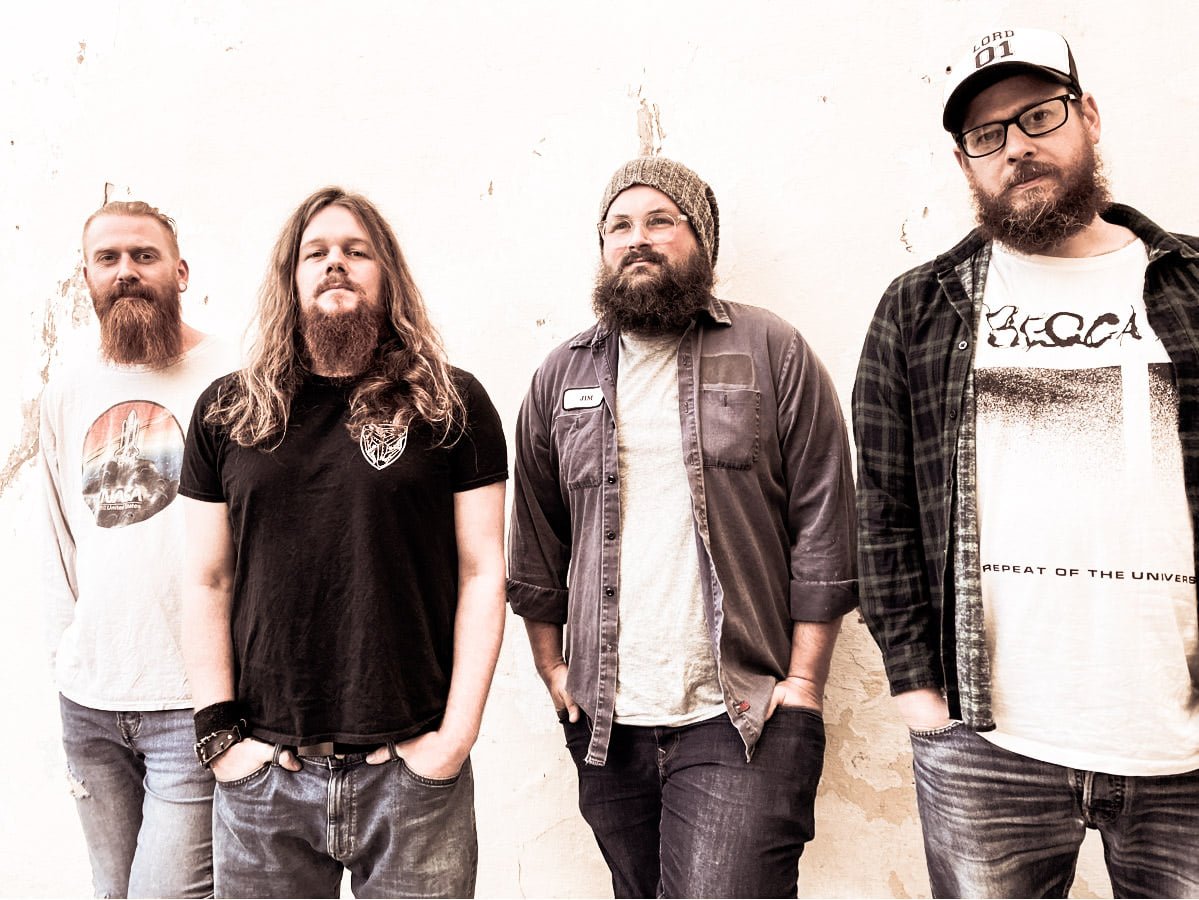All About Connection: Making Waves in the Manx Music Scene and Beyond
What does it mean to “make it” as a band? How do you know if you’ve got there? (Or if you’re “on your way”?) Crucially, do you even want to?
February is a good time to start thinking about realistic goals; we all have a tendency to want to do everything in the New Year, but it can’t all be sustainable. Now is a good time for to reflect on the reality of what it is that you want, and whether you think you can achieve it.
Over the past couple of months, I’ve spoken to a range of people involved in the island’s music scene in some way in order to get a better picture of personal success in the industry ー as defined by those who seek it. The thanks go to musicians Ben Donaldson (Voodoo Bandits), Lily Wolter (Penelope Isles), Simon Pott (Isvisible Isinvisible) and the boys from Man in the Woods, plus promoter Kevin Madigan, for helping me figure this all out.
It’s worth noting that this isn’t a how-to guide: success comes in different ways for different people, and there is no magic key. We are simply sharing the experiences of people passionate about music on the Isle of Man and trying to find their way. There are just as many ways to do this as there are musicians! A lot of it can come down to luck, but there are ways to make your own luck too.
What has your approach been to music on the Isle of Man? Have you tried to follow the paths of other success stories in the music industry, and where has that led you? Message, comment, share and we can all continue to learn from each other’s experiences.
Establishing Your Island Base
It might sound obvious, but all the musicians I spoke to seemed to agree that, when you’re establishing yourself, the most important thing to do is twofold: invest (first time, then money), and get yourself out there. When we spoke to musician Simon Pott (aka Isvisible Isinvisible) about his early output, he told us he made thirty five (yes, 35!) albums in the space of two to three years and uploaded them all to Bandcamp.
Though Voodoo Bandits have a more calculated approach to what music they decide to release, they find their own ways to maximise exposure. Ben tells me that they play a lot of cover gigs on the island to earn the money to further their original material. A lot of bands that play across set up GoFundMe’s to raise the amount of money Voodoo Bandits would make in one or two cover gigs, so having access to that market is perhaps a uniquely Manx advantage. With this money, they can get across to play to more people, invest in better equipment for self-recording, or even afford better sound engineers to help the mixing and mastering process.
They do acknowledge that, through this, it’s still important to not get too big for your boots, so to speak:
[On playing off-island] “It’s absolutely necessary. But I think sometimes it might get lost in translation of having made it if you play across if you’re a Manx band. The reality is, the bands that live in Manchester play there all the time; it’s just that we have to get on a boat to go over there!” ーBen, Voodoo Bandits
Voodoo Bandits from their Indie Sandwich gig last year, by Vannin Photos
Man in the Woods, a “hard rockin' fuzz heavy, stoner space sludge" group (their words) explained the complicated circumstances of playing on the island. When the boys have played across, the size and layout of the room meant that the crowd seemed abstract; aside from smaller venues being easier to fill, you know if a crowd is really with you over here. More so, they’re identifiable, and there’s no getting away from them ー in more ways than one; if there’s someone in the crowd you don’t know already, they’re probably a friend of your cousin who you’ll bump into in Tesco a week later. In some ways it’s a more vulnerable stage, as you have to share a community ー a scene, an island ー with these people.
“When I’m fronting it, somewhere like Compton Vaults was brilliant because everyone is there in front of you. But then you get to Manchester and all you can see is smoke ーyou can’t see anything. In between songs, it’s hard to work on someone who’s hundreds of miles away from you.” ーMarc, bassist and vocalist for Man in the Woods
Penelope Isles are seen by many over here as an Isle of Man success story. Now based in Brighton, siblings Lily and Jack Wolter who front the band both grew up and began their musical careers on-island.
Struggling for funds, Lily and Jack did everything they could themselves: from T-shirts painted in friends’ gardens, to Jack’s budding production skills, to CDs burnt on their laptop. Lily tells me that, if they were low on CDs on tour, they would set up a factory line in the van, stopping off at a Post Office to pick up colouring pens, some glue, a pack of paper, and a stack of blank CDs. Someone would be in the front burning, someone would write on the disc with a Sharpie, someone would fold the sleeves, and someone else would stick on the artwork.
At the end of the day, things don’t always go to plan, and if you have the passion then you’ll probably do what you have to do. If they hadn’t burned those CDs, then everyone who wanted to buy their music at the next gig wouldn’t have been able to ー not to mention, they wouldn’t have made any money from music sales either.
Lily credits the island with teaching her about hard work. Her biggest tip to new musicians and bands is to (and I quote) “gig, gig, gig”. Whatever it takes.
“The drive is what gets you places. Make make make. A lot of younger bands worry so much about releasing and waiting ages to release stuff and making sure that it’s perfect. I think at the start you’ve just gotta get lots of shit out there, and people hear your music and get a buzz out of it. When you’re starting, gig gig gig. Anywhere you can, everywhere you can, until you’ve got a little bit of a fanbase, and then you can be a little more selective. That’s the advice I can give to bands that are starting out.” ーLily Wolter, Penelope Isles
Evolution: The Next Steps
All of the bands I spoke to felt a sense of assurance in their artistry; true, the hustle never ends, but I got the sense that they all knew who they were and how to at least start getting heard. So: where next?
Kevin Madigan, a long-time guitarist himself, is a promoter, artistic developer and manager. I asked him about tips for other budding musicians and he referred back to a band he manages (and who were there in the same interview), Voodoo Bandits. When they met for the first time, Kevin got the sense that they were “trying to understand the industry”. As it exists today, the music industry is constantly evolving: the example that comes to mind is the impact of the Covid-19 pandemic, which made way for digital agents, getting a band out there in another form rather than just live.
Ben was quick to add that understanding different elements of the industry is a challenge, but one that he’s working through and playing around with. When getting your name out there, I know all too well that you’ve got to consider everything carefully on social media: how to edit your visuals, what caption to write, how to encourage people to click. You need to think carefully about what people will see when they click on your profile, and how that will capture their attention. Voodoo Bandits work at exposure from all angles, but it’s really about Spotify when it comes to discovering new music. As we delved into in a recent article on the increasing popularity of vinyl records, writing has to be algorithmic these days, especially when it comes to new bands: catchy vocals come in quick, with no lengthy intros and a high level of production.
“You’ve gotta fake it ‘til you make it, or at least try and be what you wanna be. If you wanna be a big band, try to look like a big band.” ーBen Donaldson, Voodoo Bandits
Support comes from other artists too: before Penelope Isles were signed to Bella Union (more on that soon), they would share equipment with friends from other bands ー like Sam from chilled-out rock ‘n’ rollers Holiday Ghosts and Ben from sad indie pop group Golden Dregs. Ultimately, you’re all working towards the same goal.
To Sign Or Not To Sign
For many up-and-coming bands working today, the dream is to be signed to a record label. However, that is not the be-all and end-all; in an industry as brutal as music, you have to be able to work for yourself ー to get by on your own. With or without a label, you can still network.
The man behind modular synth project Isvisible Isinvisible, Simon Pott, doesn’t play live, so all of his connections were made by reaching out online. He isn’t signed to a specific record label, but he managed to get an early album put out on independent and then-cassette-only label Burning Witches. In short, he sent them some music, and they said yes ー the very next day, in fact. It was Burning Witches’ idea to combine what used to be two projects, Isvisible and Isinvisible, into one so they could release a double album. Later, when Burning Witches switched to vinyl-only, they reached out to Simon and put his album Moon White Water out on record.
When I spoke to Lily from Penelope Isles, she stressed the importance of having people on your team who are genuine fans. She knows that the head of the label they’re signed to, Simon Raymonde of Bella Union, is a huge fan of their music. Moreover, he trusts them as artists, and in turn genuinely supports them. They have a great relationship which is maintained by mutual admiration and respect.
We told the story of how Simon Raymonde met Penelope Isles in our in-depth interview piece with the band, but the lesson it boils down to is that sticking to your guns and being your authentic self leads to the best connections.
Authenticity is a big part of what brought another Manx band, Man in the Woods, to their current label, Argonauta Records. After linking through an obscure chain of mutual friends and connections at a gig in Manchester, Man in the Woods sent their press kits to a few different labels, and it was Italian label Argonauta that got back to them. What appealed most was the diverse and eclectic mix on the label’s roster already, like Rancho Bizarro, Goat Father and High Fighter ー all of which Man in the Woods are fans, from either before or after they found Argonauta. Each band is different, which is representative of their genre, where no two sound the same. Man in the Woods feel like they fit precisely because they don’t: they’re not trying to be anyone else.
Even without a label, bands can make things happen. Voodoo Bandits are looking forward to summer festivals and shows in London. When I spoke to Ben, the band had just finished a run of independent shows that he’d organised. He promised more to come, and that has since been announced: a Scottish tour in April, courtesy of Denholm Productions.
Whatever your situation, you need to hustle to make it all possible.
Defining Your Own Success
Simon Pott created Isvisible Isinvisible, the music project he is known for today, after playing for a few years as part of a band called Kamikaze Genes. Working on his own and not playing live, he had to rethink his process and work out how to get his music out there in a different way. At the end of the day, success is not linear: sometimes a project may come to an end and then you’ll have to do it all again when you start something new. The hustle is never over.
Ringo Deathstarr today
Before he even touched a modular synth, Simon ran a record label on the island called Spoilt Victorian Child (like Prole Art Threat, this is a reference to The Fall). This label was the first to sign Ringo Deathstarr, a band from Austin Texas. SVC put out the alt rock band’s first two releases: one on CD and one on seven-inch. The band made a good amount of money from this deal, as the label didn’t take a big cut.
After quickly rising success, Ringo Deathstar got snaffled up by a label who could produce tours for them in US and Japan. Rather than feeling resentment over the move, Simon was just happy to be part of the process ー after all, global touring was not something SVC could provide. Instead, he knows that his label was simply a step in the journey, and that’s a beautiful thing. Still, Simon does love their first self-titled EP from 2007 (sadly not available to stream).
At the end of the day, we’ve got to define our own success as creatives. Not every indie band can become Arctic Monkeys and that’s okay. Not every band from the island will go on to succeed at the highest level, but if that’s what you want then you’d better go for it. Find your artistic satisfaction ー wherever that may lie. And know that the journey is never over, never linear, and never defined.
Bonus Cheat Sheet: Top Tips
Ben Donaldson from Voodoo Bandits:
Look at your favourite bands (and all their social media pages) through an analytical lens: what are they doing that is working? Why do you like them? What can you take from their approach to the music industry?
Man in the Woods:
Listen to your core fanbase: people on the island care about you, and they want you to succeed.
Manager and Promoter Kevin Madigan:
In order to conquer the industry, you have to understand every part of the industry ー from songwriting, to production, to crafting your live set. Take your time and put in the work. It’s smaller than you think.
Simon Pott aka Isvisible Isinvisible:
If you’re a gigging band, play off the island as soon as you can. It’s a great barometer for figuring out where you are and it might hit you with a well-needed reality check: “If they like it, they like it, and they like it because of the music.”
Lily Wolter from Penelope Isles:
The drive is what gets you there. Gig and release as much as you can: don’t worry about holding stuff back, because right now what you need the most is to be heard. Get it out there.
Written by Owen Atkinson
Olivia Savage interviewed three musicians ー Ben Donaldson (Voodoo Bandits), Lily Wolter (Penelope Isles) and Dan Webb (Sunset Jet) ー the first two of whom are featured above. These interview from Olivia came out in an episode of the Isle of Man Art Council’s podcast Island Artcast, which you can listen to on Spotify.
We published our full interview with Lily from Penelope Isles earlier in the month. The album mentioned, Which Way To Happy is out on vinyl in Sound Records this Friday (February 18th).
Voodoo Bandits have shows planned in Liverpool and Manchester for March, and Glasgow, Edinburgh and Aberdeen in April. You can find all their upcoming gig dates on their social media.
To learn more about Man in the Woods, you can check out their full interview with us from January. Their debut album Badlands is due for release soon through Argonauta Records, and you can hear the first single Icarus Landing on Spotify now.
Isvisible Isinvisible is available to buy on Bandcamp and stream on Spotify. You will be able to learn more about Simon, the man behind the music, in an upcoming interview.

